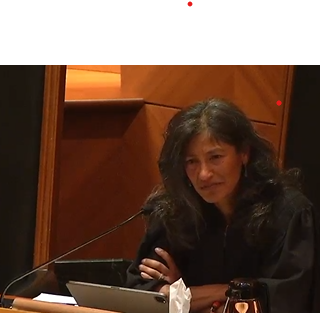
The fate of two New Hampshire men charged with illegally bringing guns into Massachusetts without an out-of-state license has become one of the most closely-watched Second Amendment fights in the nation, according to legal observers. The Massachusetts Supreme Judicial Court will settle whether the Bay State’s tough firearms possession restrictions apply to residents of New Hampshire where, since 2018, it’s been legal to carry a concealed gun without a permit. Dean Donnell Jr.
and Phillip Marquis were each charged with felony possession of a firearm in their cars when they drove into Massachusetts. Donnell was later convicted of drunken driving in connection with his charge while lawyers said Marquis regularly took his gun with him while commuting to and from work in Massachusetts. State Police arrested Marquis after he was involved in an accident on Interstate 495.

The Massachusetts law carries an 18-month, minimum mandatory jail sentence for lacking a license, but Lowell District Court Judge John F. Coffey tossed out the gun charges after deciding it was unconstitutional. Coffey’s finding rested upon the landmark Bruen decision of the U.
S. Supreme Court when its 6-3 conservative majority, for the first time — in June 2022, ruled that citizens have a constitutional right to carry a gun outside the home for self-defense. The nation’s high court didn’t set aside gun control laws, but it required states to demonstrate, if challenged, that they were consistent with the country’s “historical tradition of firearm regulation.
” Oral arguments before the SJC recently were scheduled for 30 minutes, but they took twice that long as lawyers on both sides battled over the issue while the six sitting justices raised technical points. New Hampshire Attorney General John Formella squared off against his counterpart, Massachusetts AG Andrea Campbell , as they each submitted competing amicus briefs. “For New Hampshire citizens, especially those living in southern New Hampshire, such a strict application of Massachusetts’s laws means that legal, constitutionally protected conduct — namely, carrying a firearm (for) self-defense — can be transformed into felonious conduct during a routine trip to the grocery store, the mall, or to visit a next-door neighbor,” Formella wrote.
Campbell said her state has every legal right to require non-residents get a temporary, one-year license to ensure they aren’t prohibited under federal law to possess a gun. “Nothing in the Constitution prohibits Massachusetts law enforcement officers from enforcing state law within its own borders, simply because someone is from a different state,” Campbell argued. Interest groups from both sides across the country have weighed in.
The National Rifle Association, Gun Owners of America, the Second Amendment Foundation and the Cato Institute sided with the New Hampshire men while the Giffords and Brady Centers to Prevent Gun Violence urged the high court to reinstate the charges. “Nothing in the Second Amendment prevents states like Massachusetts from adopting objective licensing requirements that apply to residents and nonresidents alike,” said Billy Clark, a senior attorney with the Giffords Law Center. “We urge the Supreme Judicial Court to reverse the lower court’s decision and reaffirm that individual states have the power to enact common sense laws that are proven to save lives.
” State Rep. J.R.
Hoell, R-Dunbarton, is treasurer of the New Hampshire Firearms Coalition and wrote his own amicus brief. “There’s no question the entire country on both sides of this are watching what happens here,” Hoell said. “If, as we hope, the Second Amendment argument prevails, this could spread to other states that have their own onerous laws like those in Massachusetts.
” Some justices questioned if Massachusetts discriminated against nonresidents because it took up to three times as long for them to get a one-year temporary license than it did residents who applied for a five- or six-year license. “A person has no right to come into Massachusetts with a gun even though they work here for six months or longer,” said Justice Scott Kafker. Middlesex County (Mass.
) Assistant District Attorney Ryan Roll said the longer waiting period was not an unconstitutional burden, but Justice Serge Georges sounded skeptical. “They have a right to self-defense — but if they come in, it’s ‘You have to wait,’” Georges said. Other justices endorsed the right of Massachusetts to create a gun-licensing threshold in the interest of public safety.
“Can you drive into Massachusetts with an assault rifle in the back seat?” Justice Frank Gaziano asked defense lawyers. “What if someone from Oklahoma doesn’t believe there’s such a thing as an assault weapon and drives into Massachusetts?” Donnell’s lawyer, Patrick Levin, said the Massachusetts law should be set aside because the nonresident can innocently not be aware of this state’s mandate. ”The fact the statute does not require any awareness of wrongful conduct is a huge problem,” Levin argued.
Further complicating matters was that a Massachusetts law allowed nonresidents to bring a gun into the state without a license if they were hunting or going to a shooting range or a firearms competition. Federal law permits those coming from “constitutional carry” states like New Hampshire to go through Massachusetts without a license if they are traveling to another state that has no licensing requirement. The SJC did not announce when it would render its decision in this matter.
[email protected].














